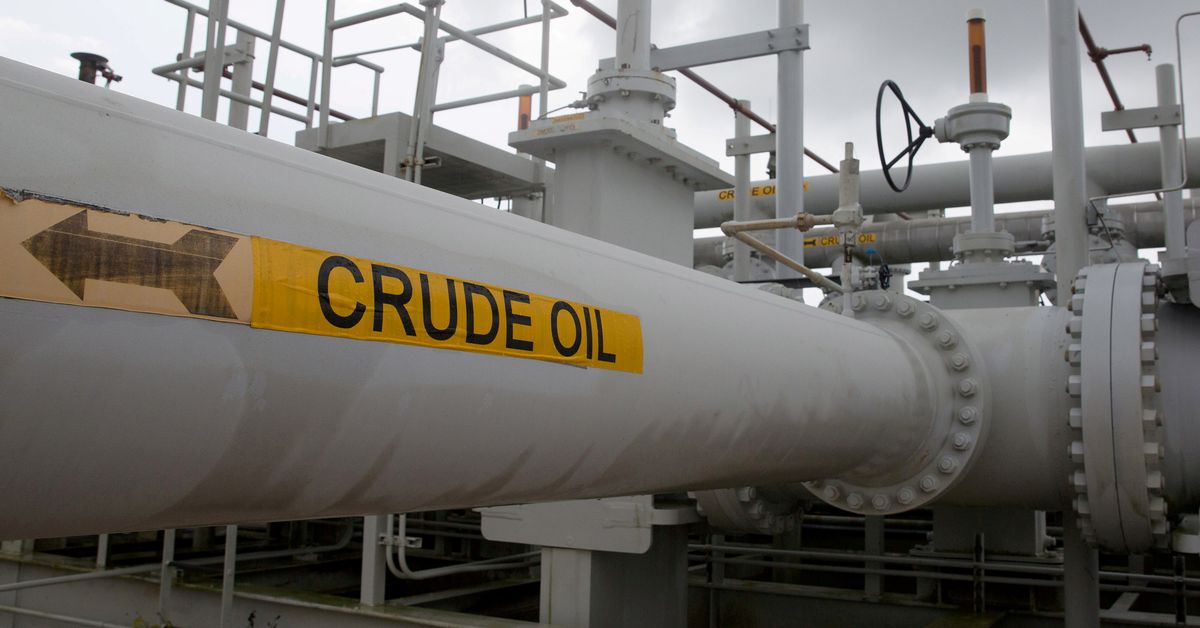A maze of crude oil pipes and valves is pictured during a tour by the Department of Energy at the Strategic Petroleum Reserve in Freeport, Texas, U.S. June 9, 2016. REUTERS/Richard Carson
Register now for FREE unlimited access to reuters.com
Register
SINGAPORE, Dec 6 (Reuters) – Oil prices rose by more than $1 a barrel on Monday after top exporter Saudi Arabia raised prices for its crude sold to Asia and the United States, and as indirect U.S.-Iran talks on reviving a nuclear deal appeared to hit an impasse.
Brent crude futures for February gained $1.39, or 2%, to $71.27 a barrel by 0458 GMT while U.S. West Texas Intermediate crude for January were at $67.66 a barrel, up $1.40, or 2.1%.
On Sunday, Saudi Arabia raised January official selling prices for all crude grades sold to Asia and the United States by up to 80 cents from the previous month. read more
Register now for FREE unlimited access to reuters.com
Register
The price hikes were implemented despite a decision last week by the Organization of the Petroleum Exporting Countries and their allies including Russia, a group known as OPEC+, to continue increasing supplies by 400,000 barrels per day in January. read more
Prices were also buoyed by diminishing prospects of a rise in Iranian oil exports after indirect U.S.-Iranian talks on saving the 2015 Iran nuclear deal broke off last week. European officials voiced dismay on Friday at sweeping demands by Iran’s new, hardline government. The talks are expected to resume middle of this week. read more
“While the group (OPEC+) has maintained that the decision was purely based on market fundamentals, it is difficult not to see the hand of the U.S. at play, particularly given the visit this week of a U.S. delegation to the kingdom,” consultancy JBC Energy said in a note.
“It is almost certain that the Iranian situation was discussed, and Saudi Arabia’s approval of the production hike suggests a compromise has been reached and that an improvement in relations with the Biden administration is on cards.”
Despite the planned increase, Russia’s total output had failed to rise as its major producers are probably facing technical difficulties in raising output in line with current agreement, the consultancy said.
Both benchmarks rebounded after falling last week for their sixth week in a row for the first time since November 2018 on concerns that the new coronavirus variant Omicron could impact global economic growth and fuel demand.
In another sign of the turmoil unleashed by the ever-changing pandemic, the head of International Monetary Fund said the global lender is likely to lower its global economic growth estimates because of the new variant. read more
Consultancy JBC Energy has revised lower its base case crude demand outlook over December and January by some 300,000 barrels per day.
The revision has erased most of the supply tightness the market has seen previously, it added.
Omicron has spread to about one-third of U.S. states as of Sunday. read more
Register now for FREE unlimited access to reuters.com
Register
Reporting by Florence Tan; Editing by Stephen Coates
Our Standards: The Thomson Reuters Trust Principles.
